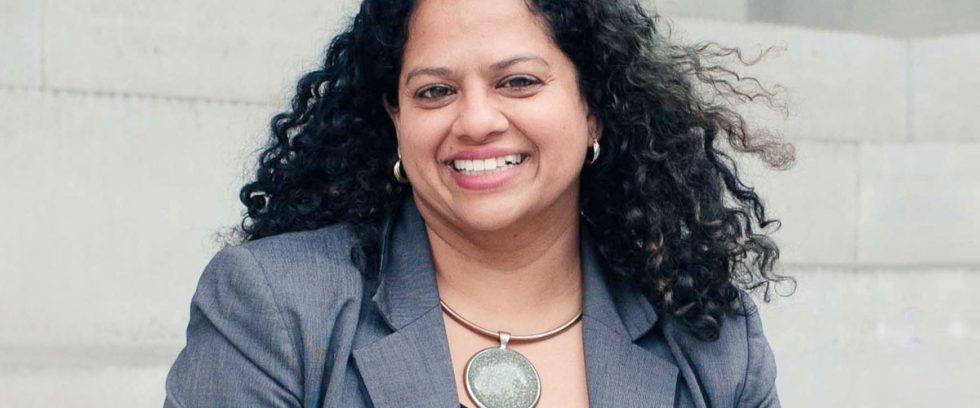
Report by 2017-19 Sauvé Fellow Barbara Karuana
On Friday March 30th, the Jeanne Sauvé fellows had the pleasure of hosting Tanya De Mello of Ryerson University at the Sauvé House for a Leadership Encounter. Ms De Mello, an alum of Princeton University and the McGill Law School is currently the Director of Human Rights Services at Ryerson University in Toronto. She led an in depth discussion with the Sauvé fellows on the topics of human rights, equity, diversity and inclusion, in which she has vast experience.
Ms. De Mello began her Leadership Encounter with us by reflecting on her personal and professional journey and more specifically her time at McGill University. It was while Ms. De Mello was studying the law at her alma mater that she experienced for the first time an educator who strived to bring elements and lessons on equity and justice into the classroom. She praised her former Constitutional Law instructor Professor Sheppard for this memorable experience. Professor Sheppard, she says, ignited in her the spark that made her understand that conversations around crucial topics such as these are essential in whatever discipline is taught in higher education. Ms. De Mello rightly insisted that without being able to do so, it will be almost impossible to raise the general moral consciousness of a nation through education.
It is for this very same reason that Ms. De Mello enjoys her work at Ryerson University. She shared with us the joy and purpose that she believes exists in being able to create an institution that focuses on more than just delivering education to young people. She and the rest of the Ryerson community care deeply about how people experience the institutions that they attend, beyond academics. She also acknowledged, and is encouraged, by the great strides being made in fields of social justice such as race relations and Transgender rights, driven by students of higher education institutions.
Given the shared interest of social justice issues that Ms. De Mello has with the Sauvé fellows, she engaged us on a critical discussion around what it means to be actively engaged in the field of social justice as a career. Ms De Mello emphasized it is no secret that working in fields such as human rights, equity, justice and inclusion can demand more emotional and intellectual labour than many other lines of work. However, following an exchange of personal narratives around why the Sauvé fellows care about the topic of inclusion to begin with, there was a general agreement that it might be painful to do this work but it is even more painful to stay silent in the face of oppressive power. We also collectively discussed the different roles that are played in social justice movements, each of them serving a critical role e.g. protestors, people working for change within institutions, ordinary people having progressive conversations with their own families and communities. All of these are needed to facilitate progress.
Finally, Ms De Mello ended the discussion with an emphasis of the importance of intersectionality as the core of every single discussion around equity and inclusion. The need to examine each other as beings with multiple identities and therefore multiple experiences was discussed at length. Ms De Mello made her concluding remarks with the powerful words of Audre Lorde’s thoughts on intersectionality: “There is no thing as a single-issue struggle because we do not live single-issue lives.”
